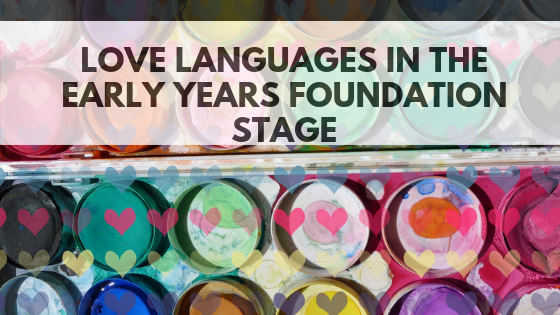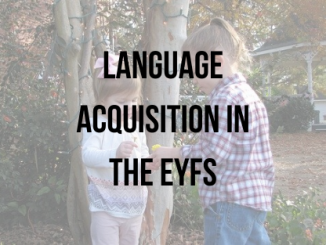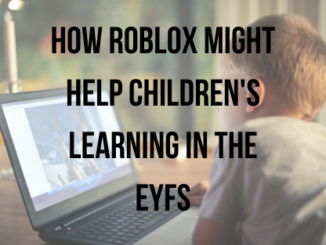The idea of “Love languages” started with Dr Gary Chapman, marriage counsellor and pastor, who has now written several books on the topic. The books have gained great popularity, as the concept has resonated so well with the general public.
The idea is quite simple; there are 5 main ways of expressing love or ‘love languages’ and everyone has a preferred way to give and receive love. Whilst we may understand that all 5 languages are ways of showing love, one or two stand out as being much more important to us than the others. When we have a significant difference in the way we express love with out partner, parent, or sibling it can be difficult to understand each other, and we may end up not feeling especially loved. Just like real languages, love languages don’t always translate well!
Whilst it has, historically, been somewhat taboo to discuss, there is now an acceptance that love is an important part of the Early Years Foundation Stage.
Dr Jools Page suggested the concept ‘Professional Love’ to try to understand the intimacies that come up for practitioners in Early Years settings. 95% of practitioners stated that showing affection to the children in their care is an important part of early years practice. However, practitioners also said that they find it difficult to express their emotions and affections due to media or parental perceptions of safeguarding issues and blurred boundaries with regards to role.
The discussion and acceptance of the importance of Professional Love is significant for those working in Early Years, and the recognition that there is rightly an element of love for those in our care leads us to considering ways in which it is appropriate to express that.
As Early Years practitioners we often deal with a whole range of children with varied backgrounds, experiences and personalities. It makes sense too that the children in our care will have different love languages.
Whilst Dr Chapman insists that children need to receive love in all 5 love languages, knowing children’s primary love language can help practitioners to clearly communicate love in a way that will have the greatest impact.
To find out children’s love languages practitioners can make close observations of the way in which the child offers affection to parents, practitioners and other children; we tend to offer affection in the way we wish to receive it. Conversations with parents will also form part of this observation, parents may tell you “She’s such a cuddly toddler” or “He won’t leave me alone! He always wants me to play with him”
As practitioners consider love languages for those in their care they may wish to consider their own love language and have an awareness of this as it affects our natural responses and practice.
Physical Affection

This love language is fairly easy to observe. Some people enjoy physical closeness; hugs, holding hands, hair stroking and physical affection is important to all young children. Babies, toddlers and young children need to be held, hugged and touched frequently but for some children it is especially important.
In Early Years settings it is completely appropriate to offer children hugs when upset, as greetings, as congratulations, to sit together and read to hold hands and to play physical games like “This little piggy went to market..” all of these will communicate love and affection to children whose primary love language is physical affection.
Words of affirmation
All children thrive when given praise and encouragement, and it’s important that we give these to all children in the EYFS as it not only explicitly tells them that we appreciate their efforts but also role models how to speak kindly to one another.
However, for some children words of affirmation are paramount and really lights them up. These may be the children that frequently tell you how much they love you, or tell their friends “your dress is so pretty” even children who are non-verbal can respond to words of affirmation, so don’t discount it just on the basis that they cannot speak yet; understanding comes long before speech!
Practitioners can offer these children lots and lots of praise, tell them “I love you too” and acknowledge their efforts and determination verbally.
Quality time
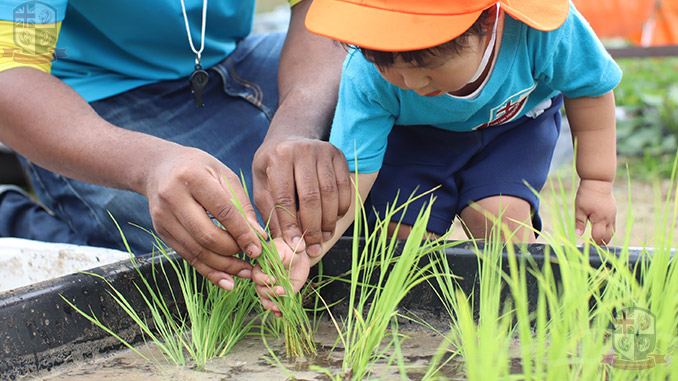
These are the “Come and play with me!” children who thrive off of having you play alongside them and spend time together.
For these children one on one time and undivided attention are vital, it can be hard to find this special time, especially if you’re working towards the higher end of ratios, but there are plenty of ways that you can fulfil this need.
Taking this child along to put the washing on, or take forms to the office can give the opportunity to spend time together. You could try playing games in a smaller group of children or introducing ‘Small Group’ or ‘Island time’ to the setting in order to spend more time with these children as part of the daily routine.
Gift-giving and receiving
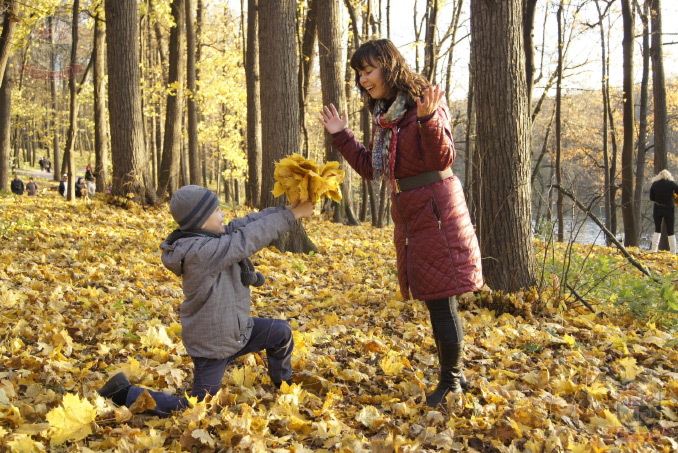
This love language is slightly more complicated for practitioners in Early Years settings, but it doesn’t mean that you have to spend money and buy children presents.
For those that have gifts as a primary love language the gift becomes a symbol of love and it can be absolutely anything; a feather, an origami creation or a flower you picked from the garden. The important thing is that the gift is individualised, thoughtful and meaningful.
Practitioners should ensure that they receive gifts from these children with great enthusiasm; displaying art work and looking after little tokens they are given.
Acts of service
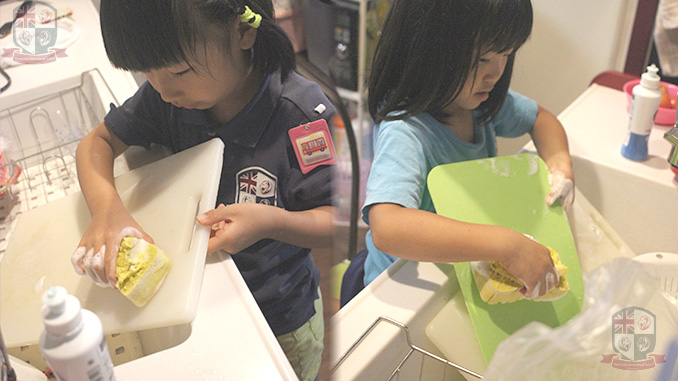
Children whose love language is acts of service may often ask you if they can help with whatever it is that you’re doing. It’s easy to brush children off because it is quicker or more convenient to do it yourself but to an acts of service child this may be construed as a rejection of their love. So, if a child asks to help you wipe the tables down, or put the blankets on the beds then try to take the time to let them.
These children may also frequently say “You do it!” or “Can you do it for me?” with regards to putting on shoes, coats, washing faces, putting toys away and such like.
The Early Years Foundation Stage is very keen to promote independence so it is often out instinct to say no, and encourage the child to do it themselves, but perhaps as practitioners we need to be a little more nuanced in our approach. Yes, it is important that children learn independence but if they are asking for an act of service because that is how they feel loved then perhaps sometimes we should be saying “Yes, of course”
Dr Chapman, advocates for promoting independence too but discusses how this can be done in a way that still fulfils the child’s act of service need. Walking a child through a new process and teaching him, step-by-step, how to be more capable, is an act of service in itself but also helps to promote independence.
Understanding love languages and how to use them is important in the Early Years Foundation Stage as it builds upon the important work we already do around positive relationships with unique children and developing secure attachments.
References:
Chapman, G. D. (2010). The 5 love languages: the secret to love that lasts. Chicago: Northfield Pub.
Chapman, G. D. & Campbell, R. (2016) The 5 love languages of children; The secret to loving children effectively. Chicago: Northfield Pub.
Page, J. (2014) Developing “professional love” in early childhood settings In L. Harrison & J. Sumsion (eds.), Lived Spaces of Infant-Toddler Education and Care. International perspectives on early childhood education and development, vol 11. Dordrecht: Springer

